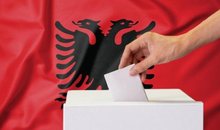
 Flash News
Flash News
The body of a 29-year-old man in Klos is found after 6 days
Arrested a few meters from SPAK, the Special Prosecution seeks 17 years in prison for the drug 'boss'
Giro D'Italia starts today, here are the road axes that will be blocked in Tirana from 13:00-18:00
Who is the new Pope?
Pope Leo XIV greets the faithful for the first time in St. Peter's Square

Marcel Lela
Radicals always remain a difficult group to manage: they move faster than they think and guess that only movement is thought. In the Democratic Party, this is an even more paradoxical situation, because the big consumer, if not the only one, of movement and thought, is Berisha. Not only in the sense that everyone expects him to be, like Alexander cutting the Gordian knot, and Aristotle configuring the world after cutting it.
Sali Berisha has been engaged in a thinking process since the July 7 protest, which was one of the most massive that he has organized in his political life. And, love him or hate him, he remains one of the greatest rallying men in this country.
As part of the thinking process, he engaged in 'dialogue with society', mostly with small tables, ranging from 10-20 people. By nature, protests are monologues: there is no direct exchange of thoughts, but exalted emotional states. If you notice, both the speeches and the receptions given to them are dominated by ecstasy. This was also seen in the speeches on July 7, where many of the speakers seemed to be out of their bodies, spluttering nervously in the hot, humid air of the July 7 evening.
After gathering that human body, Berisha talked about more protests in the fall, but implied, not promised. He was rightly pleased with that popular response, which, clearly, made him again one of the two most important, influential and popular politicians in Albania. Coming from eight years off power and managing to mass such support is spectacular in itself. To give everyone a chance, the crowd was not all Berisha's, there were those dissatisfied with the government and angry with an empty opposition under Mr. Basha. But Berisha remains the only one who can amplify and transport this social condition.
When the radicals demanded unstoppable protests, Berisha invented 'unstoppable strikes', when they were not happy with 'meetings with few people, Berisha declared that he would sit down with just one person for a conversation. The best case for this was served by Martin Jaku, a villager from Tarina e Fushë-Kruja, isolated on his gentle hill that sees both Kruja and the Adriatic as if he were one of those Albanians left there since time immemorial. of Skanderbeg.
His conversation with Berisha was one of the most outstanding moments of political communication in Albania during the last 30 years. A poor man who lives in a container after the collapse of his house in the earthquake three years ago conceived and formulated politically more clearly than 90 percent of the deputies of the Parliament of Albania.
What stands in the way of the radicals' insistence on unstoppable protests is that the DP under Basha was constantly engaged in such a process. In the end, he won nothing and lost everything. After offering 'our bodies', Basha delivered into the hands of the enemy, but also of the democratic electorate, the body of a party that had become a sieve in the battles of futility.
Does such a tactic become a good strategy? If Berisha is expected to be radicalized to the point of no return, i.e. tension of the situation on the verge of a collision, it is not only useless but also a trap. Berisha cannot put his senatorial head in the frame that others, old and new opponents, expect of him: of a radical who lets his 'people' slide into violence for political purposes. The number of those who were waiting for such a Berisha was large. The bitterness they received was visible in the evening television studios.
Radicals do not mean evil, they simply interpret an inner desire. In his opinion, Berisha does not need them, in his radicalism he does. An alternative to this has been offered, for example, by Andi Mustafaj in an article in Politiko. Instead of radicalism, he proposes radicality. They sound the same, but they are completely different. Between them lies the process of thinking, or reasoning.
Despite what is being thought, Berisha seems to be preparing the opposition for the next protest. He already has the small parties on his back, which cannot build without PD. Surely, the next protest will be even louder than July 7. With the primaries looming, a first-time thing that calls for full energy, the question is: what comes after the October protest, and where do radicalism and radicality begin to blow the horns of dissent?
Latest news

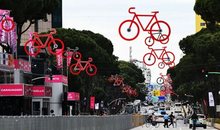

Rama's fourth act: between Brussels and the Mafia
2025-05-09 12:12:47
The body of a 29-year-old man in Klos is found after 6 days
2025-05-09 12:01:27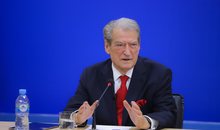
Berisha: After May 12, this opposition will become the majority in Albania
2025-05-09 11:52:37
Leo XIV celebrates his first Mass as Pope
2025-05-09 11:42:34

Spaho denounces: SP candidate in Pogradec gives 100 thousand lek for the vote
2025-05-09 11:27:26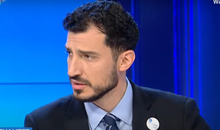
Mustafaj: Proud of the worthy campaign of the DP
2025-05-09 11:22:20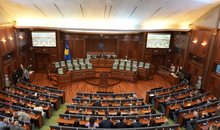
Constitution fails again, Kosovo still without a new Assembly
2025-05-09 11:06:55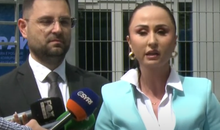





"Votes have no price", the US embassy in Tirana 'slaps' Rama
2025-05-09 10:06:49

Two young men arrested for supplying criminal groups with firearms
2025-05-09 09:45:19




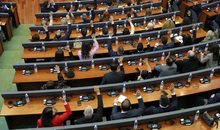


Foreign exchange/ How much foreign currencies are bought and sold today
2025-05-09 08:19:18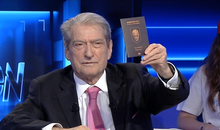
The gift that Berisha gave to Rama 'live'
2025-05-09 08:13:51
3 signs that show you are spiritually protected
2025-05-09 08:05:39

Bars can't hold back anymore, start increasing coffee prices, 4.7% more in April
2025-05-09 07:46:49

Horoscope, what do the stars have in store for you today?
2025-05-09 07:22:06
Unstable weather, afternoon brings rain
2025-05-09 07:01:29
Morning Post/ In 2 lines: What mattered yesterday in Albania
2025-05-09 06:45:46

How did LaCivita change the DP campaign? Berisha: He studied the opponent
2025-05-08 22:49:51

David defeats Goliath
2025-05-08 22:15:50

Journalist: There are SPAK infiltrators in party headquarters
2025-05-08 21:55:15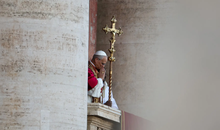
Who is the new Pope?
2025-05-08 21:48:13
Berisha finally reveals when he will retire from politics
2025-05-08 21:33:46


LaCivita in Lezha: Albanians will fire Edi Rama from his job
2025-05-08 21:11:20


Berisha: LaCivita chose us because he believes in Reagan's program
2025-05-08 20:48:40
He rejected America to serve Pogradec, Genti Çela tells about life in "Elevate"
2025-05-08 20:26:28



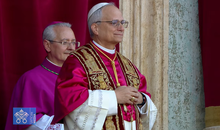
Pope Leo XIV greets the faithful for the first time in St. Peter's Square
2025-05-08 19:29:33




Photo session with LaCivitta in Tirana: For Great Albania
2025-05-08 18:40:18
Source: DASH decision a personal victory for Berisha
2025-05-08 18:30:10
Take off those crazy glasses and see where you've taken him?
2025-05-08 18:02:47
LDK files criminal charges against members of the incumbent Government
2025-05-08 18:02:00

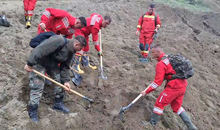
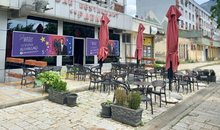




BIRN analysis: Tirana, the determining district for the future majority
2025-05-08 16:04:03




Chris LaCivita's contract with the DP, Berisha: 100% correct and clean
2025-05-08 15:11:11

"These are the peak days", Berisha reveals when he will travel to the USA
2025-05-08 14:45:25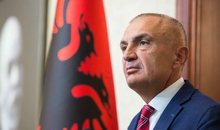


Endless boxes with filled-in ballots, DP demands separation of votes from Greece
2025-05-08 14:11:12


Photo/ Who are the 3 associates of Talo Çela arrested in Dubai?
2025-05-08 13:37:09
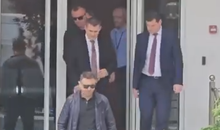
Hetimi për krimet zgjedhore, Altin Dumani zbarkon në Prokurorinë e Shkodrës
2025-05-08 13:06:21
DASH paves the way for Berisha, Alizoti: Great news on the eve of Great Albania!
2025-05-08 13:03:48

"Freedom works", DP welcomes the US position
2025-05-08 12:48:07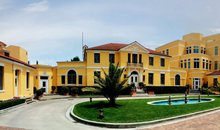
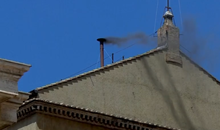
Black smoke rises from the Sistine Chapel, the Vatican still without a Pope
2025-05-08 12:26:18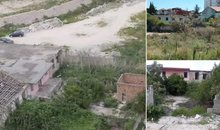
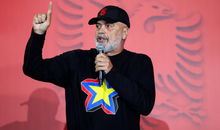




Davide Pecorrelli extradited to Albania
2025-05-08 11:29:04
'May 11, Albania will react', Xhaferri: Electoral criminals will pay
2025-05-08 11:21:46

Gjin Gjoni: Non Grata fell, Rama should get ready to go to McGonigal
2025-05-08 11:01:54